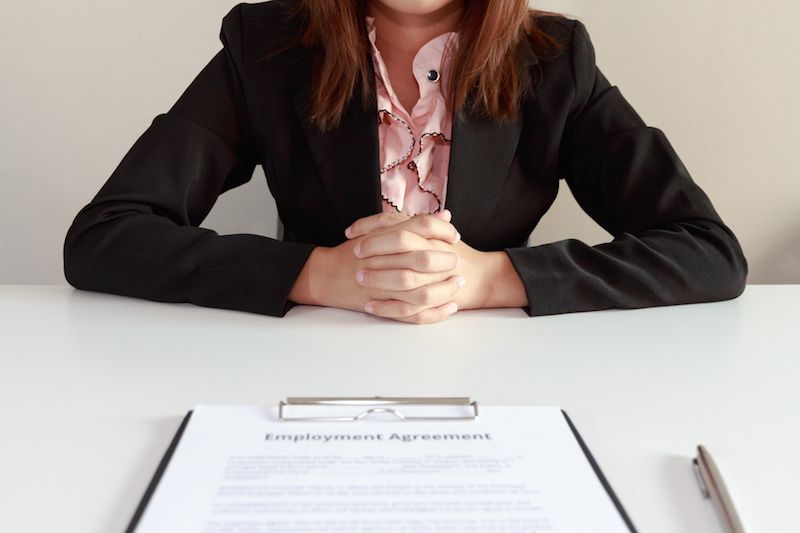Unemployment Linked to Dislike of Democracy

Individuals out of a job are more likely to harbor negative opinions about democracy and desire a rogue leader than their employed counterparts, a new study suggests.
Using data from more than 130,000 people from 69 countries, scientists found that having or not having a job is enough to make otherwise similar individuals feel differently about the effectiveness of democratic political systems.
Lead researcher Duha Altindag of Louisiana State University told Livescience he had a similar experience as a kid living in Turkey. "People were blaming the system instead of the government whenever economic conditions would go bad. So to me it's not surprising at all. They're not blaming the government or the people running the country, they're blaming the political system, which is what we show in the paper."
Individuals unemployed for over a year made up 30% of the jobless individuals in the study’s sample, Altindag said.
The results are detailed in a National Bureau of Economic Research report published in May.
Strong link to joblessness
Altindag and his colleagues teased out respondents' general attitude toward democracy by finding their level of agreement with statements, such as, "Democracies are indecisive and have too much quibbling." They also evaluated answers to questions, such as:
Sign up for the Live Science daily newsletter now
Get the world’s most fascinating discoveries delivered straight to your inbox.
- "Is having a strong leader who does not have to bother with parliament and elections very good, fairly good, bad or very bad for governing the country?"
- "How satisfied are you with the way the people now in national office are handling the country's affairs?"
- "Generally speaking, would you say that this country is run by a few big interests looking out for themselves, or that it is run for the benefit of all the people?"
Then, according to a rubric that assigned special weights to each question, scientists tabulated the responses and used statistical analyses to sift out the relative importance of each variable and how they were linked to factors, such as duration of joblessness, national unemployment rate, economic status and personal attributes.
The results only showed correlations between these variables, but not cause-and-effect relationships.
Joblessness was not linked to one's disapproval of how the country was run or the specific leadership in charge, only to discontent with democracy as a whole.
Also, an individual’s preference for democracy had no links to the "actual level" of democracy in their country, which was given by classifications in the continuously updated Polity IV project. According to this database, the United States, the United Kingdom and Germany scored a perfect 10 for democracy during that period, while Egypt, Nigeria and Iran scored some of the lowest levels.
Across the board, those with greater wealth or education held significantly less negative opinions about democracy.
In less democratic countries, the national unemployment rate had an additional impact, causing more of a negative opinion of democracy for those without jobs, Altindag said. He speculated this could be due to the more collectivist culture of many of those countries, which include Pakistan, Iran, Estonia, Russia and Asian nations. In other words, an individual's attitude could be strongly tied with societal views as well as personal experiences with unemployment.
Costs of economic hardship
Overall the results show that economic hardship comes with a social cost beyond increased crime and unhappiness, Altindag said.
"When you are a policymaker you have to face tradeoffs – inflation and unemployment, for example. Now you will have to take into consideration that when unemployment increases there is an additional external cost," Altindag said.
Though negative attitudes toward democracy do not necessarily lead to violent revolt, Altindag said, "these perceptions may translate into political actions against democracy in subtle ways, such as voting for a political party which has an explicit or implicit anti-democratic platform."
The results held even when scientists controlled for reverse causality (with political view causing joblessness) posed by "political misfits" whose opinions about democracy go against the mainstream. The thinking goes that despite jobs being scarce in Iraq, a supporter of democracy there may have trouble finding or holding a job because of their political opinions, said Altindag.
Questions and respondent replies were pulled from pre-existing data in the World Values Survey, an ongoing database of worldwide values, updated every 10 years. Data on individuals' opinions used for this study came from the period 1990-2000. Level of democracy in an individual's country was obtained from Polity IV, a project that involves annual worldwide assessments of every country's political system, classifying regimes on a 21-point scale from "hereditary monarchy" to "consolidated democracy." Economic factors such as unemployment rate were obtained mainly from the World Development Indicators of the World Bank and the International Labour Organization’s KILM database.
- Happiest States are Wealthy and Tolerant
- Bad Economy Delays 'Adulthood'
- Livescience Image Gallery: Two Americas












